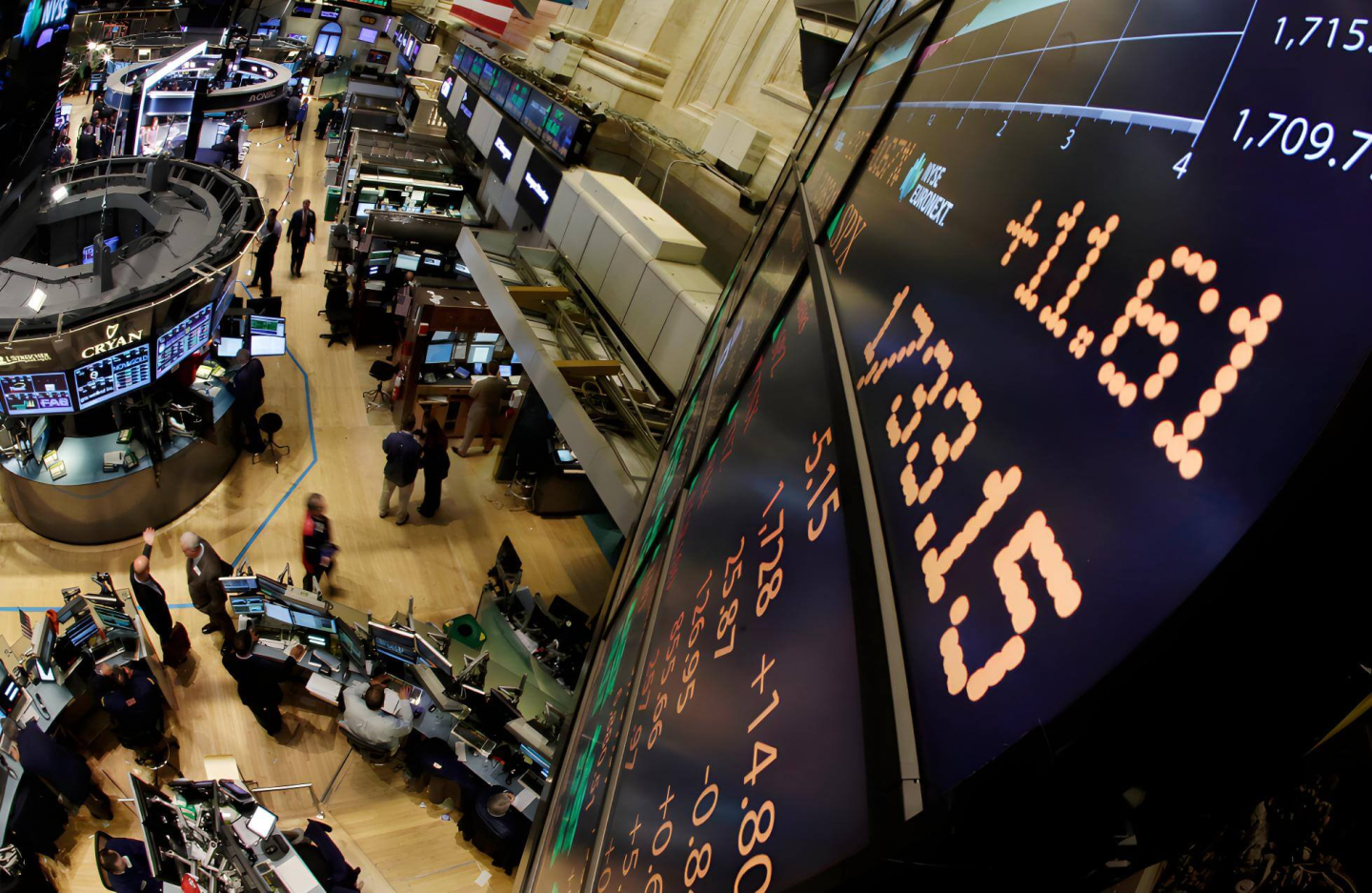The long-anticipated Liberation Day brought no good news for investors. Donald Trump delivered on every threat he had made. The specter of a trade war now looms over the world, and several major economies—including the European Union and China—have yet to respond to the United States’ ‘draconian’ tariffs. By Trump’s decision, the U.S. will impose a minimum 10% tariff on all trade partners, and in cases where countries impose particularly high tariffs on the U.S., Washington will retaliate with tariffs amounting to half their level. Moreover, Trump announced a 20% tariff on imports from the European Union and 34% on Chinese goods. These are by no means the only economies hit by such measures. Taiwan—a global export hub for semiconductors—was slapped with a 32% tariff; Japan, one of the U.S.’s closest allies, received a 24% tariff; and India, 26%.
In the context of the American economy—where uncertainty about the future and fear of recession have taken root—referring to this as a ‘Liberation Day’ seems excessive. However, the name may hold a subtler meaning. Trump emphasized that over the past few decades, the United States has become far too dependent on foreign goods and neighboring economies. As a result, the country has lost its self-sufficiency, and its power has become ‘fragile.’ Today, the U.S. is a nation vulnerable to a range of extreme global events. Now, it appears that these ‘tariff wars’ aim to put an end to the era of ‘unrestrained’ capitalism that, in pursuit of higher margins, leaned heavily on free trade.
One cannot ignore the rivalry with China. In this context, the revival of American industry seems necessary for U.S. interests—and military power—to be taken seriously. Not just now, but over the coming years, during which China's fast-growing industrial base would otherwise continue to build asymmetric and systematic dominance over America’s. Trump wants to put a stop to that.
It appears Trump is risking short-term economic pain just to ensure that the U.S. can someday truly compete with rising empires—primarily China—and maintain its global dominance. Without a strong industrial base and domestic manufacturing sector, the United States would likely be unable to maintain its role as a global hegemon. A role it once earned through industrial superiority—later exchanged for a service-driven capitalism in times of peace and prosperity. Reversing this model will carry a range of consequences—for the world, and for Wall Street.
Trump has clearly stated he will prioritize the American market and domestic businesses—but not at all costs. The U.S. President announced that tech giants like Nvidia, Apple, and Oracle will face immense costs as they build state-of-the-art manufacturing facilities in the United States.
The prospect of tariff exemptions may indeed push many businesses to consider costly reshoring. However, it would be an oversimplification to assume that this alone would be incentive enough. There are also corporate tax rates, labor costs, and other variables—such as streamlined supply chains and infrastructure—to consider. Launching full-scale industrial production in the U.S. will take years and cost a fortune, both for the federal budget and for businesses. In such a scenario, the main beneficiaries will likely be companies already producing in the U.S., as they won’t bear the extra costs imposed by tariffs.
For the American economy, a scenario involving such aggressive tariffs will likely lead to higher prices for electronics, which the U.S. imports on a massive scale. The Federal Reserve will likely pause any dovish narrative about potential rate cuts this year—at least until weaker consumer, business, and executive expectations are reflected in hard economic data. Inflation is almost certain to rise, and the question is whether the ‘free market’ can handle it, since not all companies will be able to pass costs onto consumers to the same extent. Some may be forced to absorb costs, eroding their profit margins.
Stock indexes plunged after Trump’s announcement. Nasdaq 100 futures ended post-market trading nearly 2.5% lower, despite having shown gains before Trump’s speech. Meanwhile, the so-called ‘fear index’ VIX surged nearly 6%, and uncertainty ahead of tomorrow’s market open continues to rise. The EUR/USD pair slid from 1.091 to 1.083.
Eryk Szmyd XTB Financial Markets Analyst

Three markets to watch next week (09.02.2026)

US100 gains after the UoM report🗽Nvidia surges 5%

Kongsberg Gruppen after earnings: The company catches up with the sector

Market wrap: European indices attempt a rebound after Wall Street’s record selloff 🔨
The content of this report has been created by XTB S.A., with its registered office in Warsaw, at Prosta 67, 00-838 Warsaw, Poland, (KRS number 0000217580) and supervised by Polish Supervision Authority ( No. DDM-M-4021-57-1/2005). This material is a marketing communication within the meaning of Art. 24 (3) of Directive 2014/65/EU of the European Parliament and of the Council of 15 May 2014 on markets in financial instruments and amending Directive 2002/92/EC and Directive 2011/61/EU (MiFID II). Marketing communication is not an investment recommendation or information recommending or suggesting an investment strategy within the meaning of Regulation (EU) No 596/2014 of the European Parliament and of the Council of 16 April 2014 on market abuse (market abuse regulation) and repealing Directive 2003/6/EC of the European Parliament and of the Council and Commission Directives 2003/124/EC, 2003/125/EC and 2004/72/EC and Commission Delegated Regulation (EU) 2016/958 of 9 March 2016 supplementing Regulation (EU) No 596/2014 of the European Parliament and of the Council with regard to regulatory technical standards for the technical arrangements for objective presentation of investment recommendations or other information recommending or suggesting an investment strategy and for disclosure of particular interests or indications of conflicts of interest or any other advice, including in the area of investment advisory, within the meaning of the Trading in Financial Instruments Act of 29 July 2005 (i.e. Journal of Laws 2019, item 875, as amended). The marketing communication is prepared with the highest diligence, objectivity, presents the facts known to the author on the date of preparation and is devoid of any evaluation elements. The marketing communication is prepared without considering the client’s needs, his individual financial situation and does not present any investment strategy in any way. The marketing communication does not constitute an offer of sale, offering, subscription, invitation to purchase, advertisement or promotion of any financial instruments. XTB S.A. is not liable for any client’s actions or omissions, in particular for the acquisition or disposal of financial instruments, undertaken on the basis of the information contained in this marketing communication. In the event that the marketing communication contains any information about any results regarding the financial instruments indicated therein, these do not constitute any guarantee or forecast regarding the future results.


